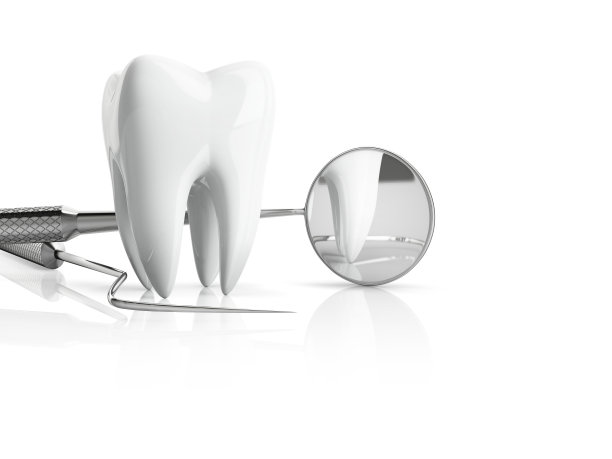Summary: After undergoing dental filling procedures, proper aftercare is vital for ensuring optimal oral health and longevity of the fillings. This article delves into essential guidelines for maintaining the best care post-treatment. Four key areas are discussed: understanding the filling material, the importance of proper oral hygiene, dietary considerations, and recognizing potential complications. By adhering to these guidelines, patients can enhance their recovery and minimize future dental issues, ultimately achieving a healthier smile.
1. Understanding Different Filling Materials

Dental fillings can be made from various materials, including amalgam, composite resins, and porcelain. It’s crucial to know the type of filling you have, as each requires different care. For instance, amalgam fillings are durable and can withstand significant pressure from chewing, while composite fillings are aesthetically pleasing but may need extra protection in the initial hours.
Different materials can react uniquely to temperature changes. For example, hot or cold foods might lead to discomfort for the first few days after placement. Being aware of your filling type can guide you in choosing foods and avoid potential issues.
Lastly, each material has a different lifespan. Understanding these characteristics will enable you to monitor the integrity and performance of your fillings, prompting timely professional check-ups when necessary.
2. Importance of Proper Oral Hygiene
Maintaining excellent oral hygiene after dental fillings is paramount. Proper brushing techniques should be employed to avoid damaging the fillings. It’s advisable to use a soft-bristled toothbrush to gently clean around the filling site and avoid any abrasive toothpaste.
Flossing is equally important, as remnants of food particles can accumulate around fillings, leading to decay. Floss at least once daily, ensuring you’re gentle around the filled tooth to preserve its integrity. Consider using non-wax dental floss, which may slide more easily between teeth without disturbing the fillings.
Additionally, consider using an antibacterial mouthwash to reduce bacteria in your mouth. This extra step is valuable in preventing plaque build-up and ensuring the longevity of your fillings.
3. Dietary Considerations After Fillings
Your diet plays a significant role in post-filling recovery. Immediately following the procedure, it’s advisable to avoid hard, sticky, or chewy foods for at least 24 hours. These foods can dislodge or damage new fillings. Instead, opt for soft foods as you acclimate to the new filling.
Furthermore, you should refrain from consuming overly hot or cold items, especially with composite fillings, as they can be sensitive to temperature extremes. Staying hydrated with water is essential, as it helps maintain oral moisture and washes away food particles.
After a few days, reintroducing a more varied diet is possible, but moderation remains key. Maintaining a balanced diet rich in calcium and vitamin D can support overall oral health, potentially extending the life of your fillings.
4. Recognizing and Addressing Potential Complications
Post-filling complications can arise and recognizing these is crucial for timely intervention. Common issues include sensitivity, discomfort, or a sharp pain when biting down. If sensitivity persists beyond a few days, it might indicate complications with the filling or underlying tooth structure.
Another red flag is the appearance of dark spots around the area, which may signify decay below the filling. Promptly contacting your dentist for an evaluation can prevent more extensive problems from developing.
Lastly, if you experience persistent pain or swelling, it may point to an allergic reaction to the filling material or an underlying infection. Immediate attention is needed to address any complications early on to safeguard your oral health.
Summary:
In summary, ensuring optimal care after dental filling procedures is vital for maintaining improved oral health. By understanding filling materials, maintaining proper oral hygiene, being mindful of dietary choices, and recognizing potential complications, patients can secure the longevity of their dental fillings and enhance their overall oral well-being.
This article is compiled by Vickong Dental and the content is for reference only.
Vickong Dental
Vickong Dental is a large medical group established in Hong Kong in 2008 by professors from well-known medical universities in Guangdong and Hong Kong, as well as medical doctors from key national '985' universities (including Master's supervisors and senior professors). The chain of branches brings together expert dentists with PhDs and Master's degrees from Hong Kong and Mainland China, committed to providing high-quality dental treatment.
"Vickong Dental Practices the University Motto of 'Healing and Serving Society,' with a Stable Operation for Sixteen Years. It Has Been honored with Hong Kong Enterprise Leaders's Choice,' and is a Global Trusted Implant Center for the Nobel Implant System. Recommended by Hong Kong Metro Broadcast and Guangdong Television, it Serves Customers from Over Thirty Countries and Regions, Gaining the Trust and Favor of Citizens from the Guangdong-Hong Kong-Macau Greater Bay Area and Surrounding Cities.

Thousands of customers' unanimous praise
The most recognized and highly recommended dental service by customers in the Guangdong-Hong Kong-Macau Greater Bay Area
We Ensure You Receive Detailed Care and Attention Here
Hong Kong standards, Shenzhen prices, Your Trusted English-speaking dentists

Vickong Dental Medical-Grade Instrument Disinfection Process
Vickong Dental Medical-Grade Instrument Disinfection Process

Vickong Dental Chain: A Warm and Comfortable Environment for Treatment






Appointment Hours

Q&A
Why choose Vickong Dental?
Vickong Dental practices the university motto 「Medicine to Benefit Society」, with each branch bringing together highly qualified dentists with doctoral and master’s degrees from Hong Kong and the Mainland, and has maintained seventeen years of steady operation。Recipient of 「2024 Hong Kong Enterprise Leaders Brand」, 「2025 Hong Kong Enterprise Leaders Brand」, a Nobel Biocare Global Trusted Implant Center, and a brand recommended by Metro Radio Hong Kong and Guangdong TV。
To date, we have served customers from more than thirty countries and regions,earning exceptionally high word-of-mouth recognition and trusted recommendations from residents across the Guangdong-Hong Kong-Macao Greater Bay Area and surrounding cities
We have eight major branches in Zhuhai、Shenzhen,and a consultation and service assurance center in Hong Kong,so you can book a free consultation at any time for any questions,which is very reassuring.
If I do not accept the quotation after the CT scan, will I be charged??
No! As long as the actual treatment has not started, you will not be charged any fees.
Will there be any additional charges during the treatment process?
No, there won’t be any additional charges. Before treatment begins, we will clearly explain the treatment plan and its corresponding fees. Only after the patient agrees and signs the consent form will we proceed with the dental service.
Can I pay in Hong Kong dollars?
Yes. Vickong Dental accepts payment in Hong Kong dollars. The amount will be converted based on the exchange rate of the day, and the applicable rate will be clearly communicated to you in advance.
Can I reschedule my appointment at any time?
Yes. Please contact us via **WeChat** or **WhatsApp** as early as possible, providing your original appointment time and details, along with your preferred new date and time slot for rescheduling.













